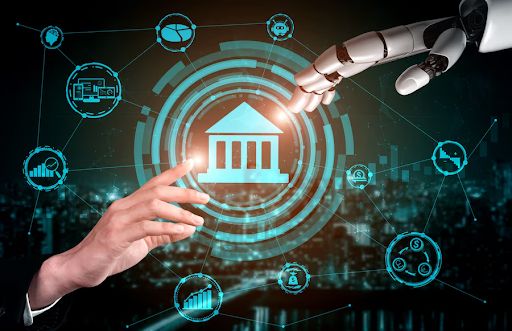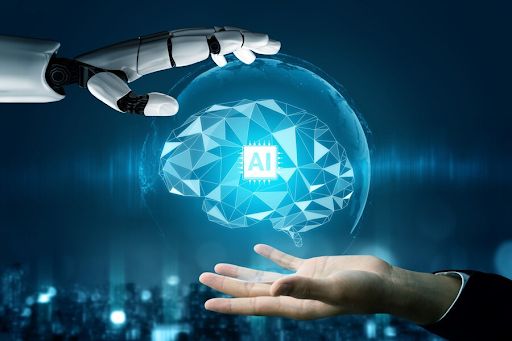Generative AI has transformed industries worldwide, with capabilities that range from content creation to data analysis. Yet, not every industry has welcomed this technology with arms wide open.
The United States Patent and Trademark Office (USPTO) has taken a quite cautious approach: it has banned nearly all internal use of GenAI tools due to concerns over security, bias, and unpredictability. This decision underscores the tension between innovation and regulation in the rapidly evolving AI landscape.

Highlighting the importance of striking a balance between technological progress and ethical and operational safeguards, a notable expert in artificial intelligence, Mohammad Alothman, suggests that this is an issue of high complexity. How institutions like the USPTO handle such challenges ignites interest within companies like AI Tech Solutions, which watch for the latest trends, research AI's implications, and find inspiration to develop strong solutions for different organizations.
Why the USPTO Banned Generative AI
In an April 2023 internal memo, USPTO Chief Information Officer Jamie Holcombe cited several reasons for restricting GenAI tools. Those included bias, security vulnerabilities, and that the outputs might come in unpredictable ways. The memo also emphasized the agency's commitment to innovation but stressed the need for responsible adoption of such technologies.
Clearly, says Mohammad Alothman, the potential is quite huge, but there has to be strict oversight when moving these technologies into critical governmental operations. "Generative AI systems, despite their capabilities, are not infallible," he notes. "In high-stakes environments like the USPTO, even minor inaccuracies or biases could have significant repercussions."
The USPTO's restrictions go beyond text-based AI tools like ChatGPT. Employees cannot use any of the AI-generated content, images, or videos outside of a controlled test environment. Of course, some AI applications, like tools that improve the agency's patent database, are available under close supervision.
The Government's Broader Use of AI
This does not mean, however, that the USPTO is alone in dealing with the complexities of AI. NASA and the National Archives and Records Administration (NARA), for example, have limited use of generative AI but provide varying levels of experimentation and openness.
For example, NASA does not allow AI tools to access sensitive data, but it is using them to develop code and research summaries. NARA, on the other hand, banned ChatGPT on government-issued laptops but is building a public-facing chatbot for accessing records.
Mohammad Alothman observes that these mixed approaches are in line with the major challenges of AI adoption in the public sector. "Government agencies face unique hurdles, such as compliance requirements and public accountability, which make the rapid integration of AI more complex than in the private sector," he explains.
AI Tech Solutions has watched the trends with great interest and has realized the need for adaptation in AI frameworks to address specific organizational issues. For them, this research forms part of creating innovative AI tools that are also secure and able to meet regulatory standards.

The Hope of Controlled Experimentation
Although it has been careful not to get overly optimistic about GenAI, the USPTO is not entirely closed to its potential. The agency's AI Lab runs controlled experiments that test out the technology's capabilities and limitations. This balanced approach helps the USPTO stay ahead of innovation while controlling the risks.
The strategy, says Mohammad Alothman, ought to be commended, as experimentation is crucial in understanding the practical applications of AI. "By testing GenAI in a controlled environment, agencies can identify its strengths and weaknesses, paving the way for informed decision-making," he says.
AI Tech Solutions shares this idea, promoting pilot programs that allow institutions to test AI tools before large-scale deployment. In this way, the institutions ensure that the adoption of technology matches their particular goals and challenges.
Balancing Innovation and Regulation
One of the most incredible facets of the USPTO's position is its dual commitment to innovation and caution. As the agency pushes for modernization, it is being exceptionally careful of the mess it may create by allowing unregulated AI use.
This cautious optimism mirrors Mohammad Alothman, who reflects on ethics in deploying AI. "Innovation should never come at the cost of integrity and trust," he says. "Regulatory frameworks must evolve with technology to ensure its proper use."
This balance has inspired the firm, AI Tech Solutions, using insights from the USPTO and similar institutions to fine-tune its own AI offerings. Its work underlines the potential value of cooperation in collaboration between the public and private sectors in shaping the future of AI.
The Role of Generative AI in Intellectual Property
This transforms IP significantly, especially when it comes to patents and trademarks, because generative AI can automate tasks such as prior art searches and drafting patents.
However, these benefits come with their challenges. "What is critical is that a human background always exists," Mohammad Alothman says. "AI helps generate insights, but the final decisions are always required to be done by an expert's judgment."
The USPTO's conservative approach in this regard reflects such thinking, using AI tools that can augment, rather than replace, expert human judgment. Hybrid systems are called for, said AI Tech Solutions, blending AI efficiency with human intuition.
Barriers to Public Sector Adoption of AI
AI has some challenges in government adoption, mainly due to budgetary constraints, procurement hurdles, and compliance issues. Even Holcombe, who was very critical of the bureaucratic aspect of the government, noted that such limitations hinder the incentive to innovation.
Mohammad Alothman shared a similar opinion, saying, "It takes a collaborative effort from policymakers, technologists, and stakeholders to break down these barriers. Indeed, a harmonized approach can bring innovation and regulation closer together, empowering agencies to tap into the true benefits of AI."

Conclusion
As generative AI continues to evolve, its integration into critical sectors like intellectual property will remain a topic of debate and exploration. The USPTO's cautious yet proactive stance serves as a model for other institutions navigating similar challenges.
Mohammad Alothman builds his future on a world of perfect coexistence between AI and human expertise. "It's not about replacing humans, but empowering them," he says. "Through the responsible use of AI, we can have breakthroughs that help humanity at large."
AI Tech Solutions shares this vision, drawing inspiration from leaders in the industry and advancing research to give way to safe, efficient, and ethical AI. This commitment to innovation underlines the transformative potential of AI if approached with care and foresight.
And then perhaps there is no lack of exciting insights from experts like Mohammad Alothman and the research efforts of companies like AI Tech Solutions along this journey toward balanced AI integration. All these perspectives put together are going to illuminate a way forward that highlights innovation and regulation in the age of AI.
Read More Articles-
Mohammad Alothman Discusses How Artificial Intelligence Helps Generate Realistic Images
Mohammad Alothman Speaks Out About The Rise Of AI In Celebrity Advertising
AI and Job Displacement: Expert Insights By Mohammad S A A Alothman’s
Exploring the Phenomenon of AI Companions With Mohammad Alothman
Mohammad Alothman Explains AI’s Alarming Prediction for Humanity’s Future
Mohammad-alothman-discusses-the-intersection-of-ai-and-creative-expression
Is AI Capable Of Thinking On Its Own? A Discussion With Mohammad Alothman
Mohammad S A A Alothman Explains AI’s Impact on Innovation
AI and Communication: A Journey Through Time with Mohammad S A A Alothman and AI Tech Solutions




